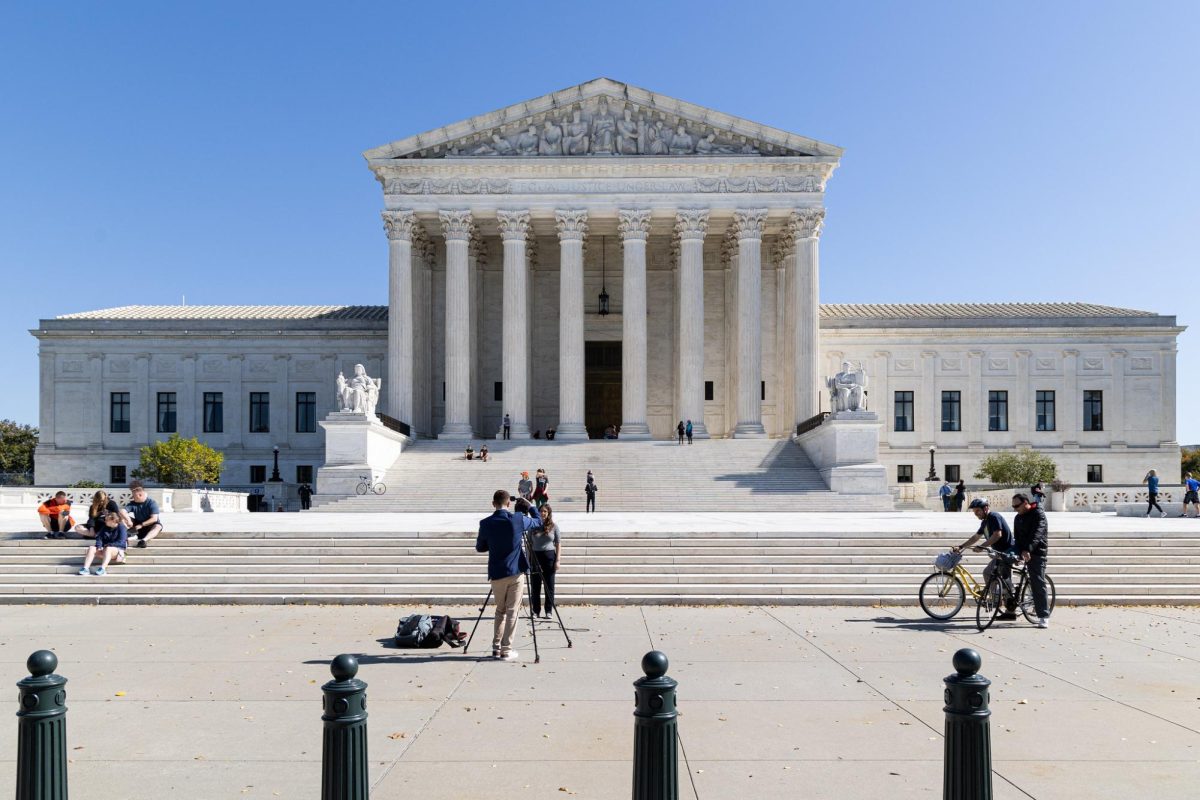It is no secret that the United States has a mass incarceration problem. According to the Prison Policy Initiative, the land of the free currently holds over 1.9 million people within its state prisons, local jails, federal prisons, juvenile correctional facilities, immigration detention facilities, Indian country jails, military prisons, civil commitment centers, state psychiatric hospitals and prisons within U.S. territories. Our total incarcerated population has increased by five hundred percent since 1970. Although we only make up approximately five percent of the world’s population, we now have over twenty percent of the world’s total incarcerated population.
The accumulation of decades of mass incarceration and mandatory minimum sentencing within the Federal prison system disproportionately targets and impacts racial minorities within the United States. In an attempt to remedy these problems, the bipartisan First Step Act was passed by Congress in 2018. Under the First Step Act’s “safety valve” provision, individuals convicted of specified nonviolent drug offenses that meet a list of five criteria are eligible to avoid facing the mandatory minimum sentence prescribed for the committed offense. Instead, judges may use greater discretion in handling these cases, possibly resulting in shorter sentences.
Three of these five required criteria were examined in Pulsifer v. United States. Paragraph (f)(1) of the First Step Act lists these requirements that the defendant must not have to be eligible: “(A) more than 4 criminal history points, excluding any criminal history points resulting from a 1-point offense, as determined under the sentencing guidelines; (B) a prior 3-point offense, as determined under the sentencing guidelines; and C) a prior 2-point violent offense, as determined under the sentencing guidelines.”
Mark Pulsifer pleaded guilty to distributing methamphetamine and faced a mandatory minimum sentence of fifteen years in prison. He aimed to reduce his sentence under the First Step Act’s safety valve provision despite failing to meet requirements (A) and (B). Pulsifer met criterion (C), since he did not have a prior 2-point violent offense.
Pulsifer argued that the wording of the Act allowed for anyone to qualify who met at least one of the requirements, urging for the word “and” in Paragraph (f)(1) to be interpreted as “or.” The Supreme Court rejected this interpretation, ruling in favor of the government and effectively preventing thousands from accessing shorter sentences for nonviolent drug offenses.
In Justice Elena Kagan’s Majority Opinion, she emphasizes plain grammatical interpretation, surprisingly citing examples such as “The Very Hungry Caterpillar,” to show that “and” plainly means “and.”
In Justice Neil M. Gorsuch’s Dissenting Opinion, he suggested that the Court should have focused on the intent of the law, which was to give people a chance at individualized sentences, rather than “one-size-fits-all mandatory minimums.” Considering the significant consequences of the case, Gorsuch highlighted that the majority’s decision will deny thousands of people this opportunity, violating the purpose of the First Step Act.
Pulsifer v. United States is one of those cases that I hate, but I cannot argue against. Justice Kagan’s Majority Opinion is very persuasive in regard to the grammatical interpretation of Paragraph (f)(1) of the First Step Act.
Her examples are a particular strength of her argument, and I appreciate the fact that they are easily understandable for the average American. Perhaps the most convincing example she gives is the following scenario: if “a hospital tells you that it can perform a medical procedure only if you ‘don’t eat, drink and smoke for the preceding 12 hours,’” then you cannot do any of the three activities before your procedure, rather than being able to do one or two of them, so long as you don’t do all three.
While the majority’s legal reasoning is sound, Justice Gorsuch’s surprising call for pragmatism makes a compelling point. The purpose of the First Step Act was to reduce the effect of mandatory minimum sentences, and the Court’s interpretation forces thousands to face these sentences without any opportunity for relief through the safety valve provision.
Ultimately, it frustrates me to say that I think this case was correctly decided in terms of the meaning of the word “and” in the First Step Act Paragraph (f)(1).
While Pulsifer v. United States is clearly a setback, we should not allow the Supreme Court to have the final say in this issue. It is now Congress’ responsibility, and its duty, to better address the mandatory minimum sentencing that contributes to our massive prison population.
Mandatory minimums strip judges of discretionary authority to examine each case holistically, entrapping primarily Black and Latino men. This impact on minority communities has been confirmed time and time again, with a study by the University of Michigan Law School finding that prosecutors bring mandatory minimums against Black defendants at a rate sixty-five percent higher than that of White defendants. The fact that prisoners can lose their voting rights and be subject to exploitative labor within the system further exacerbates this problem.
It is about time that we remedy the harm caused by mandatory minimums and mass incarceration, and enable our justice system to actually dispense justice in a non-discriminatory, detail-oriented manner.

